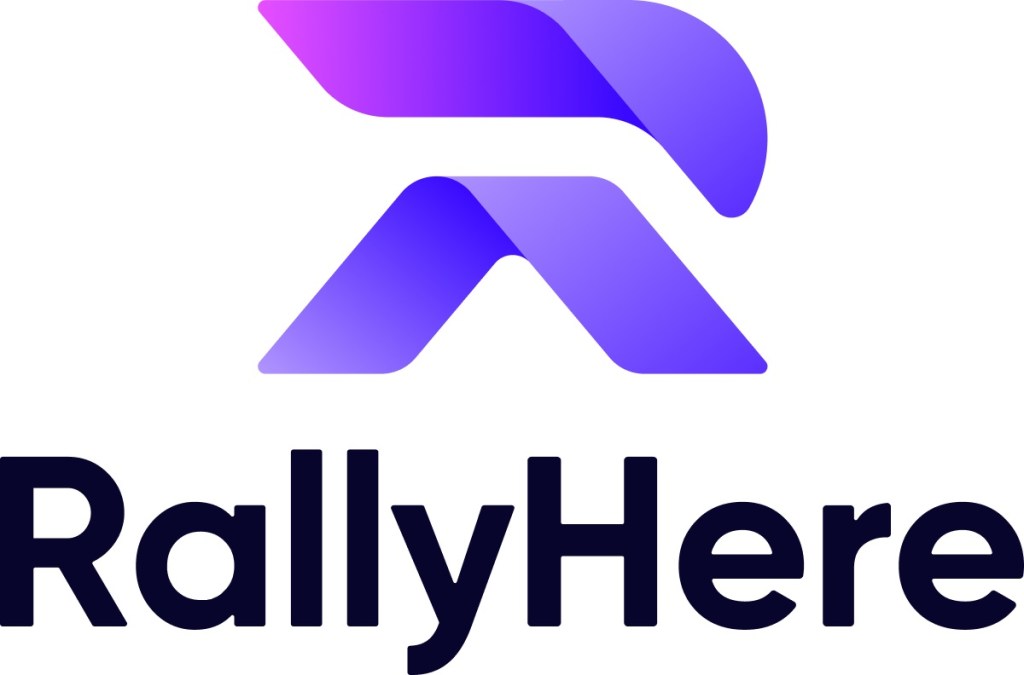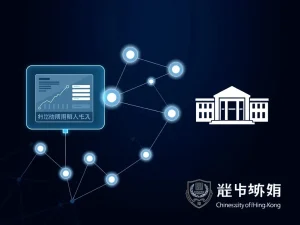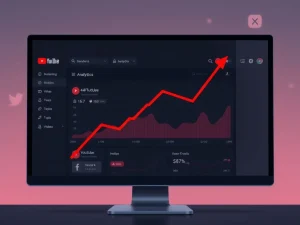RallyHere supports Smite 2 and ProbablyMonsters with live services

[ad_1]
RallyHere is a backend services provider that supports the launch of live services games such as Smite 2 and those coming from ProbablyMonsters.
RallyHere is a backend technology company that makes it easier for game companies to launch multiplayer games. It’s a small team based in Atlanta that made it possible to create the multiplayer gaming in the title Smite. Its focus is on live services games, a new category that promises riches but, as recent events have shown, also raises a lot of challenges.
“You have to be steeled for failure and prepared for success in this industry,” said Stewart Chisam, head of RallyHere, in our interview. “It’s a real tough industry. Most games struggle. But if your game does explode (in a good way), the last thing you want to do is burn that lottery ticket. No one knows how their game is going to do before you launch it. We de-risk it.”
It’s a category of gaming that is full of opportunity and peril, as live services games like Smite have lasted for years while Sony’s recently launched Concord — envisioned to last for years as a live services game — flopped in the market and was canceled after just 12 days in the market. One of ProbablyMonsters‘ former divisions (sold to Sony), Firewalk Studios, made the Concord game with the hopes it would last for years. It didn’t. But ProbablyMonsters has more games in the works, and it has raised $250 million.
Join us for GamesBeat Next!
GamesBeat Next is connecting the next generation of video game leaders. And you can join us, coming up October 28th and 29th in San Francisco! Take advantage of our buy one, get one free pass offer. Sale ends this Friday, August 16th. Join us by registering here.
Chisam said in an interview at the Devcom game developer event in Germany that RallyHere’s job is to offload game developers by handling backend services tasks so the game makers can focus on the game. Hi-Rez Studios has created the RallyHere division to provide its technology to other game companies. The idea is to offload mundane yet critical tasks that game developers don’t have to do so they can focus on making a great game, said Chisam.
“We’re plumbing and infrastructure for these games. What’s going to set your game apart is your game not necessarily the plumbing. It will only set your game apart of the plumbing is bad. Strengthening that plumbing is an advantage we have,” Chisam said.
Chisam said that RallyHere has been crucial in helping its parent company bring Smite 2 to its current stage, just ahead of its launch. It’s a setup not unlike Epic Games and how it uses its game Fortnite to learn about development challenges and address them with improvements to its Unreal game engine. It’s like eating your own dogfood.
“Smite 2 will be interesting. Making a sequel to a live service game is an interesting challenge, but we’re very excited. It’s been great for RallyHere, providing the tech side. And of course, RallyHere is associated with Hi-Rez Studios, which is making Smite 2. It’s good synergy for both learning do a lot of interesting things,” Chisam said.
RallyHere is also accelerating the development of new titles from the Battle Barge and Hidden Grove teams.
Origins

Atlanta-based Hi-Rez Studios announced RallyHere in February 2023, and the goal in the first year or so was to find early customers to work with. That plan worked out. Now RallyHere has 40 people.
Chisam believes the lessons learned in working on the Smite titles will be useful to other game companies. The backend solutions paired with an expert engineering support team will help shapethe success and longevity of live service games.
“Live service games like Smite 2 are incredibly complex,” Chisam said in a talk at Devcom. “You’re not just managing a game; you’re managing an entire ecosystem of players, sessions, servers, and data. That’s where our platform comes in.”
This kind of talk has been echoed by a number of other game backend solution companies, like Playfab, which was acquired by Microsoft.
Chisam said his company works with live services game makers before they launch so that they can manage their live services. He said a lot of customers seem to need help with the prototyping phase as well. A live service game has to have a lot of operations in place as it proceeds. The RallyHere team has enough veterans on it to help companies set up community management and support and more.
“In our view, a company like RallyHere is only going to be successful if our customers are successful, and it’s really important to get to get those other operational elements set up well. And we think over time, we’ll learn where there are opportunities to further automate some of those things and integrate them into the software tools,” he said.
Four key platform components
Chisam highlighted the four key components of RallyHere’s platform, connecting directly to thechallenges all multiplatform, cross-progression live service game developers face.
He said the first thing to focus on is player management.
“At the heart of any great game is a strong connection with the players,” Chisam said. Whether it’s handling logins, linking accounts, or managing a player’s inventory and progress, the goal is to ensure players feel invested and enjoy the game without hiccups. It’s about giving developers the tools to engage and retain players over the long haul.
He also said the next component is sessions and server orchestration. Chisam then introduced Gameflow, explaining, “It’s our comprehensive solution that encompasses Session Management, Matchmaking, and Fleet Commander. Together, they form a powerful system that ensures players are grouped effectively and their sessions are hosted on the best possible servers. This combination balances performance and cost, ensuring that, no matter where your players are, they’re getting the best possible experience.”
RallyHere also focuses on publishing and LiveOps.
“It’s not enough just to launch a game,” Chisam continued. “You’ve got to keep it fresh, keep it engaging. That’s where our Publishing & LiveOps tools come in. These tools help developers manage everything from in-game purchases to rolling out new content and events. And with our Developer Portal, game dev teams can quickly adjust and respond to what’s happening in the game, keeping the community vibrant and the experience fresh.”
And finally RallyHere focuses on data and analytics. Chisam discussed the importance of data in making informed decisions about a game’s future.
“Our data and analytics tools give developers deep insights into what’s happening in their game. It’s not just about tracking KPIs; it’s about understanding player behavior, seeing what’s working and what’s not, and then making the right decisions to improve the game. Whether fine-tuning gameplay mechanics or identifying the best times to launch new content, the data we provide helps developers make smarter decisions that enhance the player experience.”
A shared vision: RallyHere’s collaboration with ProbablyMonsters
RallyHere’s platform isn’t just powering Smite 2; it’s also driving forward the work at ProbablyMonsters,an independent video game company known for its innovative approach to development. ProbablyMonsters has raised more than $250 million to date.
RallHere’s partnership is built on the same technological foundation that supports Smite 2, providingcomprehensive live service operations for ProbablyMonsters’ upcoming titles.
Mark Subotnick, senior vice president of partnerships at ProbablyMonsters, said in a statement that RallyHere’s track record and deep understanding of game development were key factors in the decision to partner.
“RallyHere isn’t just another service provider,” Subotnick said. “They are also game developers who understand at a deep level what we’re trying to achieve and how to get us there.”
Subotnick emphasized the benefits of working with RallyHere, particularly in terms of reducing the operational headaches that often come with game development. “By having a trusted partner like RallyHere, we can focus on the game itself, knowing that our backend needs are expertly managed,” he added. This close collaboration has enabled ProbablyMonsters to accelerate their development process, moving quickly from testing to playtesting environments with RallyHere’s support.
RallyHere’s growing influence in live service gaming

The success of Smite 2’s alpha launch and the ongoing partnership with ProbablyMonsters highlight RallyHere’s growing influence in the live service gaming space. The platform’s ability to support games at scale, combined with its deep integration with developers, positions RallyHere as one of the games backend services leaders.
As Chisam pointed out at Devcom, the real work begins after a game’s launch. The collaboration between RallyHere and ProbablyMonsters exemplifies the mutual benefits of a well-aligned partnership, with both companies gaining increased velocity and success as they work together to bring new games to market. This partnership sets the stage for future collaborations that will continue to shape the landscape of live service games, Chisam said.
As Activision noted for Call of Duty, skill-based matchmaking is hard because game makers have to balance getting people into a match fast with putting the right combination of skillful players into the match to make the game close.
“I’d rather wait for minutes rather than get into a bad match,” he said. “If you have smaller numbers of players, the problem gets a lot harder.”
Typically, game companies don’t know what load a game can handle until they have lots of players. They can do testing when there are hundreds or small thousands of layers. But when it comes time to launch, there could be a million players or more ready to play the game. And they won’t want to wait.
Looking ahead

RallyHere is working with ProbablyMonsters on a couple of games. Going into 2025, Chisam said, “We’re now looking to more ramp up the sales and marketing and start to execute more on signing up a lot more customers.”
The tech and operations are stable, he said. Now customers with multiple games like ProbablyMonsters can ship them with a common platform. The result is common operations for publishing teams, marketing teams, community and support teams, and common data collection for key metrics.
“That’s really becoming a focus. We’re working with one other kind of multigame publisher we haven’t announced yet as well,” he said.
One of the tasks is to get players in and out of matches in a smooth game flow. Doing that successfully is a complicated thing to orchestrate, he said. There are multiple vendors in this space.
“What we’re able to do is put one API that developers can develop to and then we’re able to go out and work with all of these vendors, plus the major cloud vendors like Azure, and orchestrate this for you, versus you having vendor lock in to any one of those players,” Chisam said. “If one of the vendors has a problem, we can seamlessly reallocate in the backend to another vendor.”
As far as pricing goes, Chisam said his firm is close to the enterprise subscription pricing of other rivals in the market, and RallyHere’s support for Smite 2 is a good proof point. The RallyHere team has grown to about 40 people. The company is a wholly owned subsidiary of Hi-Rez.
As for big hits this year like Helldivers 2 and Palworld, Chisam said that if a game is extremely successful like those games, RallyHere can help a company pivot much faster and gain more advantages given the server orchestration and cross-platform work.
Disclosure: Devcom paid my way to Germany, where I moderated a couple of panels.
[ad_2]
Source link










